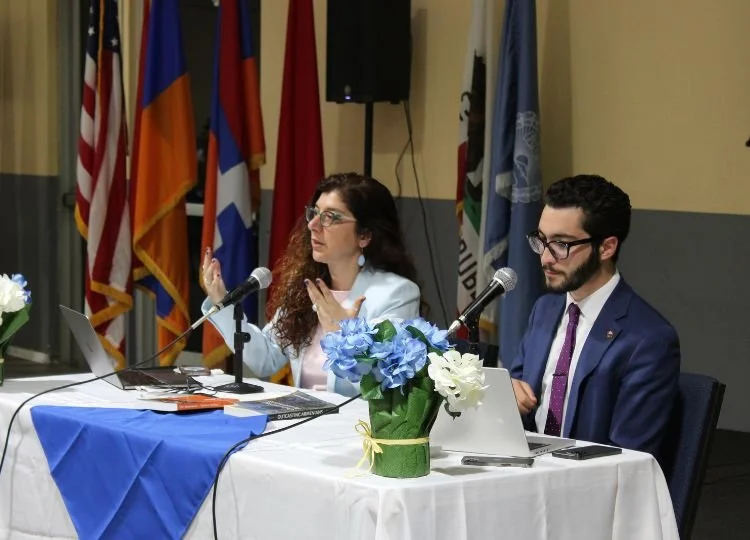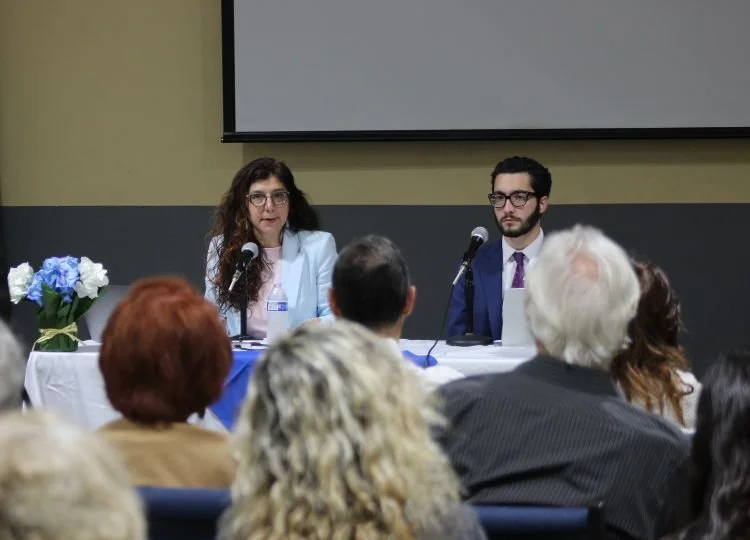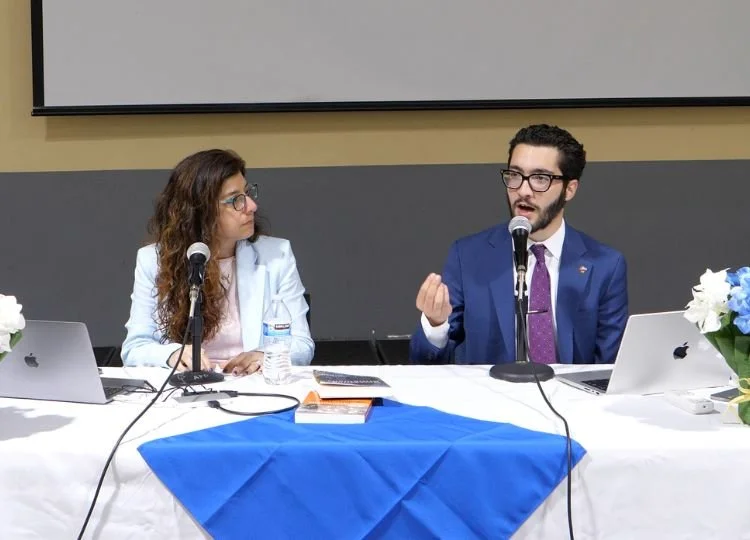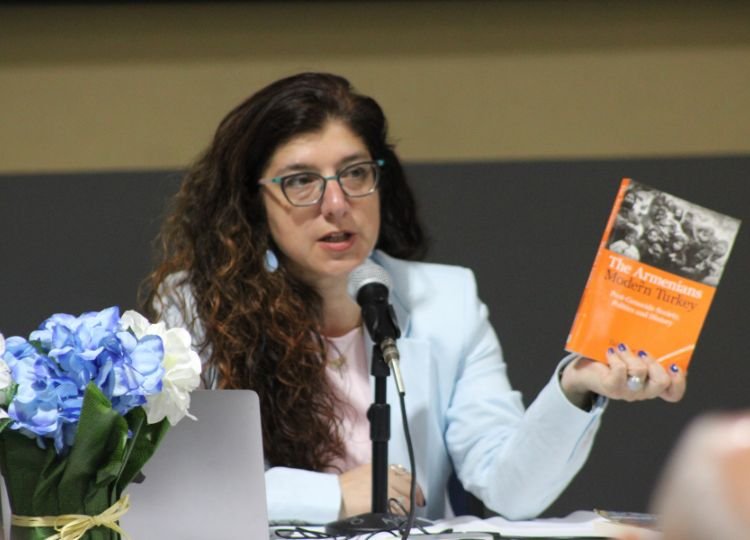Glendale Youth Center Hosts Professor Talin Suciyan for Powerful Conversation of Survival, Memory, and Resilience
Glendale, CA - Hosted by the Glendale Youth Center, the highly attended and deeply impactful event “Outcasting Armenians: A Powerful Conversation on Survival, Memory, and Resilience” took place on the evening of May 27 and featured distinguished historian and scholar Prof. Talin Suciyan. The program brought together members of the Armenian-American community, students, educators, and civic leaders for an engaging and thought-provoking discussion centered on the silenced histories of Armenians in the Ottoman Empire and modern-day Turkey.
Prof. Suciyan, an associate professor of Turkish Studies at Ludwig Maximilian University of Munich, has built a career dedicated to uncovering and analyzing the lived experiences of Armenians in the post-genocide era. Born in Istanbul and educated at Armenian schools, she completed her undergraduate studies at Istanbul University before earning her Ph.D. in Germany in 2013 with a dissertation titled “Surviving the Ordinary: The Armenians in Turkey, 1930s to 1950.” Her groundbreaking research explores the long-term impact of state denial, cultural erasure, and systemic marginalization on the Armenian population that remained in Turkey after the genocide. Her scholarship includes several landmark publications: The Armenians in Modern Turkey: Post-Genocide Society, Politics and History (2016), Outcasting Armenians: Tanzimat of the Provinces (2023), and her most recent work, Armenians in Turkey After the Second World War: An Archival Reader of USSR Consular Documents (2025).
“The Armenians in the Ottoman Empire survived many tyrannies and vehemences throughout decades, but we never have even inquired about their livelihoods,” said Prof. Suciyan. “We may be able to piece together and understand it if we read Raffi (Hagop Melik Hagopian), but it is imperative that we delve into the study and analysis of the history of the Armenians in the Ottoman Empire, in order to bring justice to their stories, and give meaning to their suffering.”
The discussion was moderated by Garen Jinbachian, ANCA-WR Community Coordinator, who guided the evening’s program through themes of historical memory, state violence, and the moral imperative to confront uncomfortable truths. Prof. Suciyan delivered a compelling presentation grounded in extensive archival research, emphasizing the ways in which Turkish official discourse has systematically erased and marginalized Armenian communities over the past century. Drawing from Ottoman records and Armenian sources, she challenged the dominant narrative of the Tanzimat reforms as progressive, instead exposing the ongoing oppression faced by Armenians in the provinces and beyond.
Prof. Suciyan’s research methodology centers around the use of overlooked and often deliberately buried primary sources–ranging from Ottoman state archives to Armenian provincial newspapers, letters, and the archives of the Armenian Patriarchate. Through cross-referencing official records with Armenians accounts, she reconstructs a far more complex and troubling picture of the 19th-century reforms. Where official Ottoman narratives celebrate the Tanzimat as a civilizing mission, Armenian sources reveal a parallel reality of broken promises, unprotected ethnic minorities, and increasing state surveillance, systematic discrimination, and persecution. By juxtaposing these archival voices, Prof. Suciyan shows how the rhetoric of reform masked a deeper structure of unequal treatment, such as unfair and excessive taxation of Armenians and practices reminiscent of slavery, effectively allowing the Empire to present a modernizing face to Europe while perpetuating violence and exclusion on its eastern frontiers. Her work not only challenges the dominant historiographical consensus, but also restores dignity and agency to the Armenians whose stories were systematically silenced.
“If there is one thing to take from this wonderful conversation with Prof. Suciyan, it’s that we –as the survivors of the Armenian Genocide – not only should not, but shouldn’t be allowed to minimize the importance of the hard facts of the Armenian Genocide.” said Jinbachian. “At the very least, we should be able to master this section of History. We should be able to know the why, where, how, of the Armenian Genocide. It is only after knowing, that we can start educating others completely oblivious to the subject, and seek justice and retribution for the loss of our homeland.”
A vibrant Q&A session followed the presentation, reflecting the audience’s deep engagement with issues of historical justice, intergenerational trauma, and cultural preservation. The evening was both intellectually rigorous and emotionally resonant, underscoring the urgent relevance of Prof. Suciyan’s work to the Armenian community and to broader global efforts for truth and accountability.




